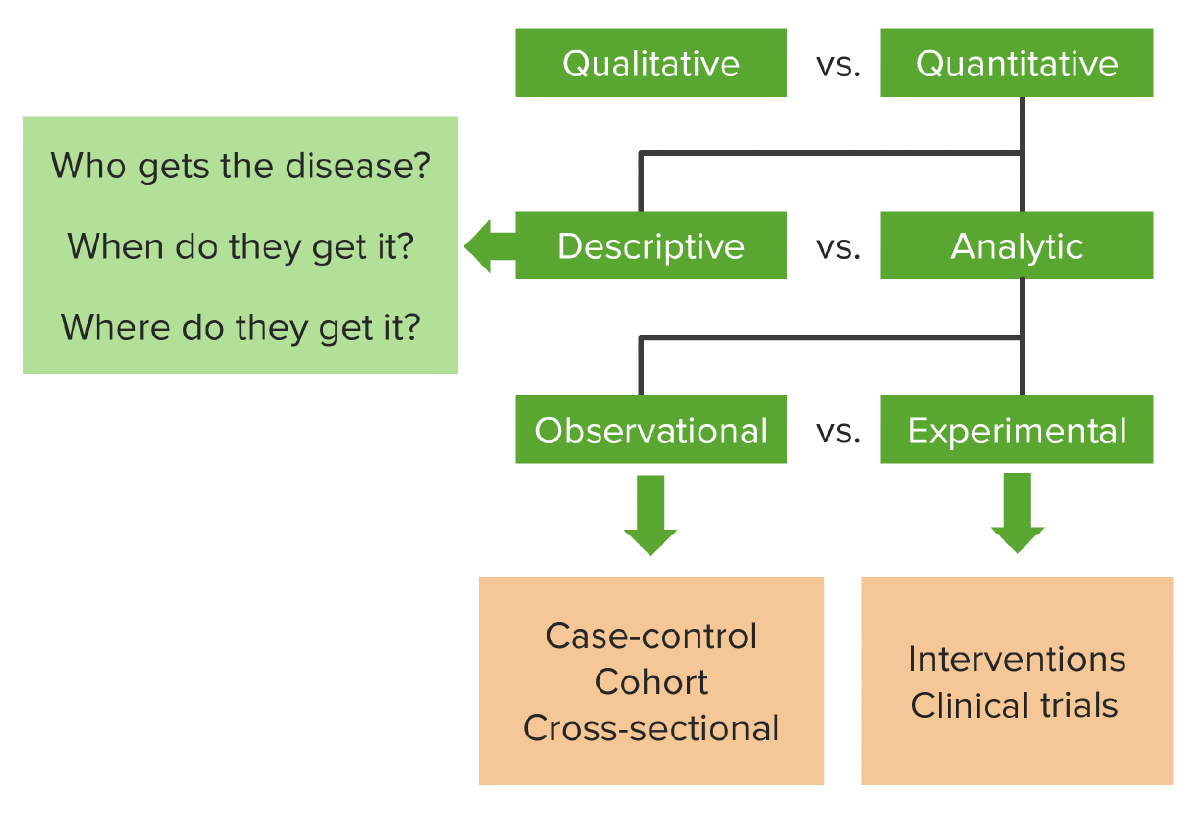Playlist
Show Playlist
Hide Playlist
Origin of Epidemiology
-
Slides 01 OverviewHistory Epidemiology.pdf
-
Download Lecture Overview
00:00 Our story begins in the early 19th century in London England, when a man named John Snow, whose name you might have heard of, decided to investigate a cholera outbreak that was happening in London at the time. Now back then, we didn't know a lot about what caused diseases, there was a few theories, some were more fantastical than others, but there wasn't a lot of evidence to support many of the theories. John Snow's innovation was that he was going to use maps and numbers to describe the epidemic, the outbreak, now to us today that seems kind of rational, kind of boring, kind of everyday, back then it was revolutionary. So what he did, was he figured out that back in London in the 19th century, several neighborhoods were being served by water pumping stations and he reasoned that probably cholera was waterborne and he took the time to figure out which pumping stations were providing what water to what neighborhoods. His investigation led him to conclude that one particular pump, the Broad Street pump, was likely responsible for most of the cholera outbreaks in that city. You can go to London today and actually visit the Broad Street pump, there is a plaque there that says, "This is the spot where epidemiology was born", or something like that. It's quite fascinating and I encourage you to go if you can. 01:21 Let's look a little bit at the history of disease before we continue. Before John Snow and his brethren made their innovations and discoveries, it was thought that diseases were caused by miasma. What's miasma? It's some kind of fantastical poisonous magical vapor or mist that would emanate from swamps of the ground and people would shut their windows at night so it didn't get into their houses and cause them to be sick and it had a foul smell associated with it. Miasma doesn't really exist, we know that today because we know that diseases are caused by infectious agents, microbes, pathogens, bacteria, viruses. 01:59 We know this because around the same time that John Snow was making his investigations, the microscope made its first appearance and we could see these microbes in action. So it was a revolutionary time. 02:11 Let’s look a little bit at the data that John Snow collected. He looked at the number of houses being served by a variety of pumping companies, the Southwark and Vauxhall Company, the Lambeth Company and other companies in London. He saw that each was servicing a different number of houses and he counted the number of deaths from cholera experienced by those neighborhoods. To most people, the number of deaths alone were sufficient to tell the story, but that's not where John Snow stopped, he divided the number of deaths by the number of houses being served in each neighborhood and got a quotient, a ratio, a proportion. 02:49 Again, to us today that's an obvious thing to do, back then it was revolutionary, it was an innovation and by looking at the quotient, the proportion, he discovered that majority of deaths were being caused by one particular pumping station and he narrowed it down to one pump, the Broad Street pump and today that's why we have the science of epidemiology. 03:09 It's the science of using non-medical tools, mathematics, paper, your mind, your hands, your feet, to learn something about disease that otherwise you would not have known. So today we have different kinds of epidemiologists. I mentioned that John Snow was a kind of outbreak investigator, a medical detective of some kind, most physicians who are epidemiologists are clinical epidemiologists and they bring to bear a variety of perspectives, they bring to bear the choices made by their patients, the clinical research and practice experience that they have and also the experiences of their mentors to make decisions for small groups of people usually in the clinical environment. Public health epidemiologists are people like John Snow, these are the individuals who investigate outbreaks, who figure out which sandwich at the picnic gave you diarrhea, who figure out what's probably causing that outbreak of disease in that community over there, they are also the ones who planned the vaccine schedules for a community. Population epidemiologists look at large disease trends in a population, the incidence and prevalence, the risks factors that cause diseases and so forth, obviously there is a lot of overlap in all these different types of epidemiologists and there are newer, emerging types of epidemiologists today. Epidemiology is forging partnerships with political science, with economics, with computer science and genetics; it's a fast evolving and diversifying science. 04:37 So before I continue, I want to talk about how we know what we know, it's important to understand where our discipline fits into the science of knowing. We call this paradigms, paradigms of research, paradigms of knowing. When we talk about paradigms, we're talking about how our discipline interacts with the world that understands knowledge and evidence and truth. There are several dimensions to a paradigm and I'll suggest you that there are three main pillars philosophically of how to define a paradigm. The first is ontology and that's how we experience reality. Is reality defined by my imagination or your imagination, or is reality defined by some objective truth of the universe? Then we deal with epistemology, that's how we acquire and process knowledge. Do we know about the universe from interrogating it, from talking to people, from collecting data? And then we have our methodology, maybe the ways in which we design our studies, that determines how we understand the universe. 05:42 The important part about all this is that paradigms of research allow us to define how the world works and how we extract knowledge from it. A psychologist, a political scientist, an economist, an anthropologist, an epidemiologist interact with the world a bit differently and define knowledge a bit differently. We define the questions that we ask a bit differently as well, when we look at evidence-based medicine, we're going to phrase a research question and the paradigm of knowledge from which we arise, helps us define the types of questions that we can ask. Our paradigm of research also tells us what is publishable and what isn't, because it defines what constitutes knowledge, what constitutes proper evidence and epidemiology is, I hope you will conclude with me, all about how we rank evidence and understand truth. In essence a paradigm tells us how the world is structured and tells us what determines meaning and significance. 06:41 Epidemiology exists within something we call the Etiologic paradigm, which is a kind of positivism and it purports that there exists external objective truth that we can access via our methodologies, our science, our study designs. And we can measure risk factors and things that cause outcomes, smoking causes cancer, this behavior will cause this other kind of outcome, that's the nature of the epidemiologic etiologic paradigm. I bring this up because it's important that we remember that epidemiology and any discipline for that matter is but one path to knowledge, there are a variety of paths to knowledge, different disciplines have their own paths. It is important that we don't descend into arrogance when we consider the evidence that we choose to base our medical decision-making on.
About the Lecture
The lecture Origin of Epidemiology by Raywat Deonandan, PhD is from the course Epidemiology and Biostatistics: Introduction.
Included Quiz Questions
Which of the following is a dimension of a research paradigm that deals with how we define and experience reality?
- Ontology
- Epistemology
- Methodology
- Statistical analysis
- Defining knowledge
What was so revolutionary about John Snow’s approach to understanding the cholera outbreak?
- He used math to detect that the majority of the London cholera cases were coming from a specific water pumping station.
- He used the cholera outbreak to confirm the miasmata theory.
- He was the first person to discover the germ theory of disease.
- He only drank boiled water throughout his life.
- He discovered that there were bacteria in the well water.
Which branch of epidemiology investigates outbreaks and determines vaccine schedules?
- Public health epidemiology
- Clinical epidemiology
- Population epidemiology
- Environmental epidemiology
- Distributive epidemiology
Which branch of epidemiology is concerned with the prevalence, incidence, and risk factors of diseases in the population?
- Population epidemiology
- Clinical epidemiology
- Environmental epidemiology
- Public health epidemiology
- Descriptive epidemiology
Which branch of philosophy is concerned with how we acquire and process knowledge?
- Epistemology
- Methodology
- Ontology
- Etiology
- Philanthropy
Customer reviews
4,5 of 5 stars
| 5 Stars |
|
1 |
| 4 Stars |
|
1 |
| 3 Stars |
|
0 |
| 2 Stars |
|
0 |
| 1 Star |
|
0 |
thanks for this short talk about this topic i understand what you say
I enjoyed his method of delivery, I understood it all, and I learned.




